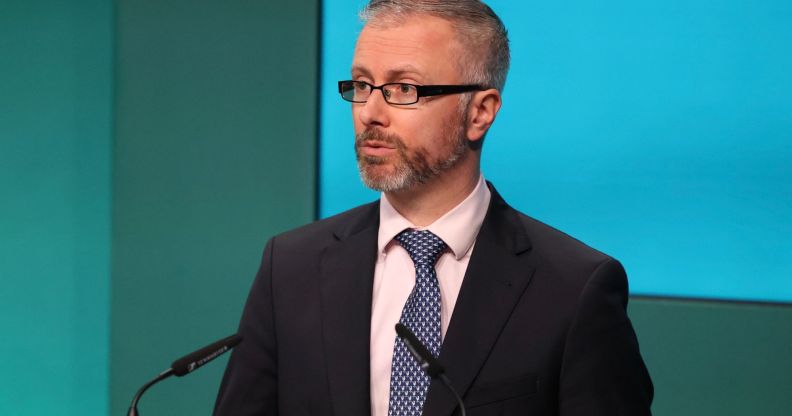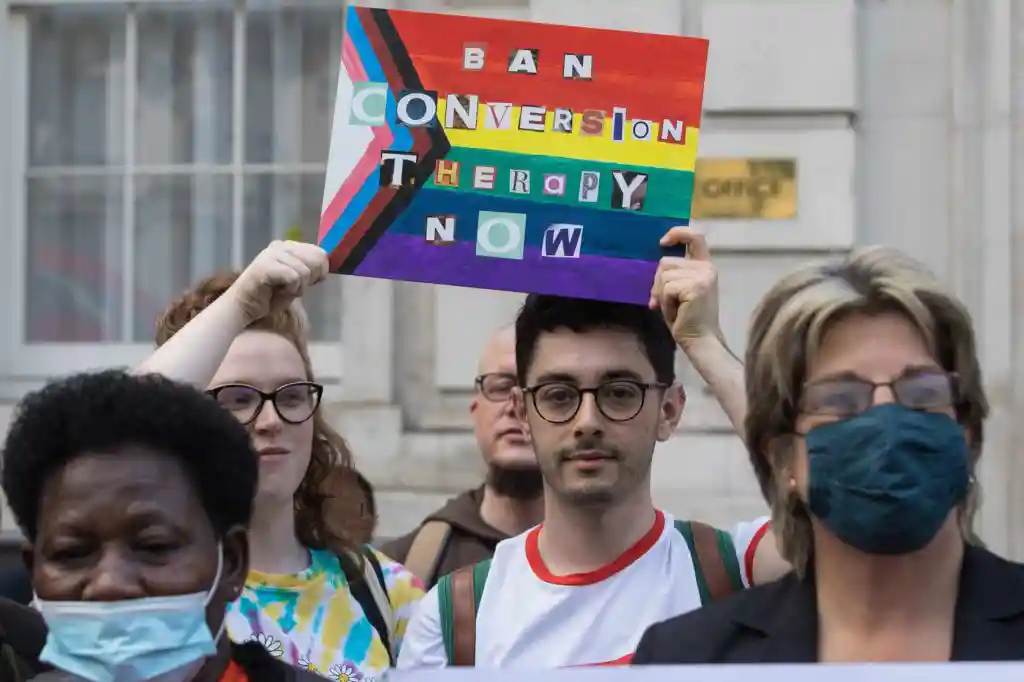Ireland commits to banning ‘devastating’ conversion therapy in 2023 – while UK dithers and delays

Minister for children equality, disability, integration and youth, Roderic O’Gorman, has committed to bringing forward plans this year to ban the use of conversion therapy in Ireland. (Roderic O’Gorman/Twitter)
Ireland’s integration minister Roderic O’Gorman has vowed to prioritise a ban the use of “extremely exploitative” conversion therapy by the end of this year.
The Green Party politician, who is gay and has served in his role as minister for children equality, disability, integration and youth since June 2020, had previously branded conversion therapy “a cruel process rooted in the promotion of shame”.
Conversion therapy refers to any from of treatment or psychotherapy which aims to change a person’s sexual orientation or suppress their gender identity, based on the notion that being LGBTQ+ is a mental illness that can be “cured”.
“A process that seeks for somebody to change their sexual orientation or gender identity is extremely exploitative, particularly if undertaken on someone under 18,” O’Gorman told the Irish Mirror.
“I’d hope to bring the legislation into the Dail next year.
Aware that “legislation takes time”, O’Gorman aims to have the bill passed by the end of this year, but admits it could take longer.
“That’s certainly what I’d be working towards, but it could drift into 2024,” he added.

O’Gorman Aya he’s met with a number of people who’ve been subjected to conversion therapy.
“It doesn’t happen a lot in Ireland, but when it does happen, its impact can be really devastating on people,” he added.
“Particularly on young people who are just coming out and exploring or understanding their own sexual identity.
“To masquerade where they’re unhappy or nervous that that can be changed, I think it’s just so exploitative.”
O’Gorman said having an understanding of “the damage that it can do to people” is something he feels “strongly about” and something he hopes to “progress as Equality Minister”.
If Ireland bans the cruel and damaging practice, it will join other European countries in working towards doing so, including Belgium, which plan to entirely ban conversion practices by early this year.
O’Gorman, who is prioritising reforming equality legislation in Ireland this year, said the new law could also outlaw socio-economic discrimination that sees people disadvantaged for their address or their accents.
“That’s maybe a more pernicious type of discrimination, but one that very much exists,” he said.
“We’re looking to bring forward mechanisms that [mean] just as no one should be discriminated against on grounds of their race or sexual orientation, they shouldn’t be discriminated against on socio-economic grounds either.”

Conversion therapy ban routinely delayed in UK
Ireland’s progress follows minister for women and equalities, Kemi Badenoch, reportedly halting work on a conversion therapy ban in the UK.
The UK government first promised to ban conversion therapy in 2018 under Theresa May’s leadership.
Following May’s resignation, Boris Johnson’s government was left to handle the process of drafting a bill banning the practice, publishing a consultation in 2021.
But the uncertainty of the legislation’s eventual creation grew after Johnson announced in March that he was dropping plans to draft the bill.
He imminently U-turned on the claim within hours of making it, vowing to implement the ban – but not for transgender and non-binary people.
Despite 2023 starting with no sign of a bill to ban conversion therapy, a spokesperson for the Government Equalities Office told PinkNews that the suggestion Badenoch was delaying the process was “completely untrue”.
“This is a complex issue and it is important that the government’s proposals are as strong as possible,” the spokesperson added.
“We remain committed to introducing a ban. Ahead of this, we have already taken steps to ensure victims of conversion practices have the support they need through a new service which launched last year.”
How did this story make you feel?

